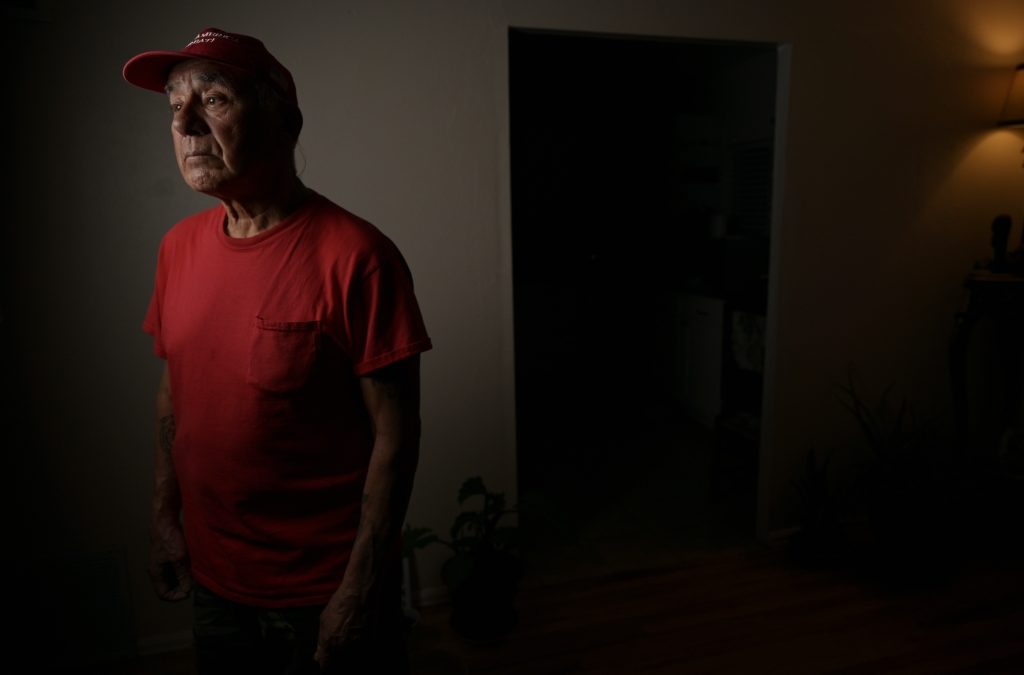Epifanio Nieto was riding a bus in September when his body suddenly stopped working — he tried to use his hand but couldn’t, and then he started to fall.
The driver stopped the bus, saying “I think you’re having a stroke.”
An ambulance was called, and Nieto, 73, spent seven days in the hospital. When he finally recovered and received the bill, it was for just $112.
“That’s one benefit to Medicare,” he said. “They took care of everything.”
Nieto, who served 13 years in prison, had a harder time than many securing the federal health insurance — he was incarcerated when he turned 65, and penalized because he did not sign up for Medicare during the required seven-month window around his 65th birthday.
His experience is common among older people who are released from prison in Colorado, experts say. They face extra hurdles to finding both housing and health insurance.
In July, state legislators passed a law aimed at addressing some of those hurdles and requiring the state’s Commission on Aging to study the problems and report findings by the end of the year.
“It’s just one of those things, the more you learn, the worse it gets,” said Jane Barnes, chair of the commission.
“It’s like a Gordian knot,” she added, referring to the historic name given to a problem solved only by bold action.
The commission spent six months studying the problem and formed several recommendations for how the state can help older people navigate healthcare after their releases from prison. Barnes declined to discuss the recommendations until the report becomes public in January.
Among the problems: people who have been incarcerated for decades may not have enough work credit to qualify for premium-free Medicare even if they worked in prison; release from prison does not trigger a special enrollment period so some must wait months to sign up; and many prisoners miss the brief window to sign up for Medicare around their 65th birthday and go on to face penalties.
“It’s been overwhelming; the lack of support, the lack of resources for anyone elderly leaving prison has been a nightmare,” said Kelly Brasier, whose 85-year-old uncle Anthony Martinez was released from prison in January. She’s spent the months since wading through red tape. Her uncle was not eligible for full Medicare because of his limited work history, she said.
“He’s got no work credit, even though he worked as a janitor in the prison,” she said.
She’s been paying for many of his medical expenses out of pocket, springing for a hospital bed, handicap ramp, wheelchair, walker and crutches, she said. She’d like to see the Department of Corrections ensure older inmates are enrolled in health insurance before they are released — a step that is now mandated by the law passed this summer.
Related Articles
That mandate should help “to some degree,” said Terri Hurst, policy coordinator at Colorado Criminal Justice Reform Coalition, adding she believes some formerly incarcerated people will still face penalties around their work history and the timing of their enrollment, and may need to rely on private insurance plans instead of Medicare.
Related Articles
Colorado prisons hold 625 inmates over the age of 64, said Annie Skinner, spokeswoman for the Department of Corrections. That’s about 5% of the prison population statewide. About half that group — 327 people — are serving life sentences, she said.
Not all prisoners have family members like Brasier they can go live with after their release, and finding housing for older prisoners and those with significant medical needs is another major challenge for senior adults exiting the state’s prison system.
“Housing is almost always the most difficult,” said Jamie Ray, lead care manager at Second Chance Center, a nonprofit that helps people find their footing after leaving prison.
Nursing homes may refuse to accept residents who served time in prison, and older adults may not be able to work the sort of manual labor jobs that have traditionally been one of the higher paying fields available to formerly incarcerated people.
Seventeen people in Colorado have been approved for parole but are still imprisoned simply because they have nowhere to go, said Ruth Koffman, deputy executive director of community operations at the Department of Corrections.
“We can’t release someone who has high medical needs and is old and infirm, we can’t just put them at a bus stop,” she said. “…There has to be a placement that people feel comfortable with before we send someone off.”
On average, those 17 prisoners have been held 210 days since being approved for parole, Koffman said. The person with the longest wait has been looking for a placement for almost two years.
The Department of Corrections is now seeking about $700,000 to fund a new program aimed at finding nursing home placements for such inmates. The program would pay nursing homes a supplemental rate to accept people released from prison, Koffman said. The initial budget request could pay for 10 beds, she said.
“This population has unique health needs because incarceration is damaging to one’s health in general,” she said. “So that rate justifies the extra level of care that they need.”
Ray recalled an 84-year-old man who was released from prison into a halfway house because there “was nowhere else for him to go.”
The halfway house was not ideal, but it was better than prison, Ray said.
“We had bikes that we were giving out one time,” she said. “…He got on the bike and was riding it around in the parking lot smiling. It was the last bit of freedom he got.”
This content was originally published here.

